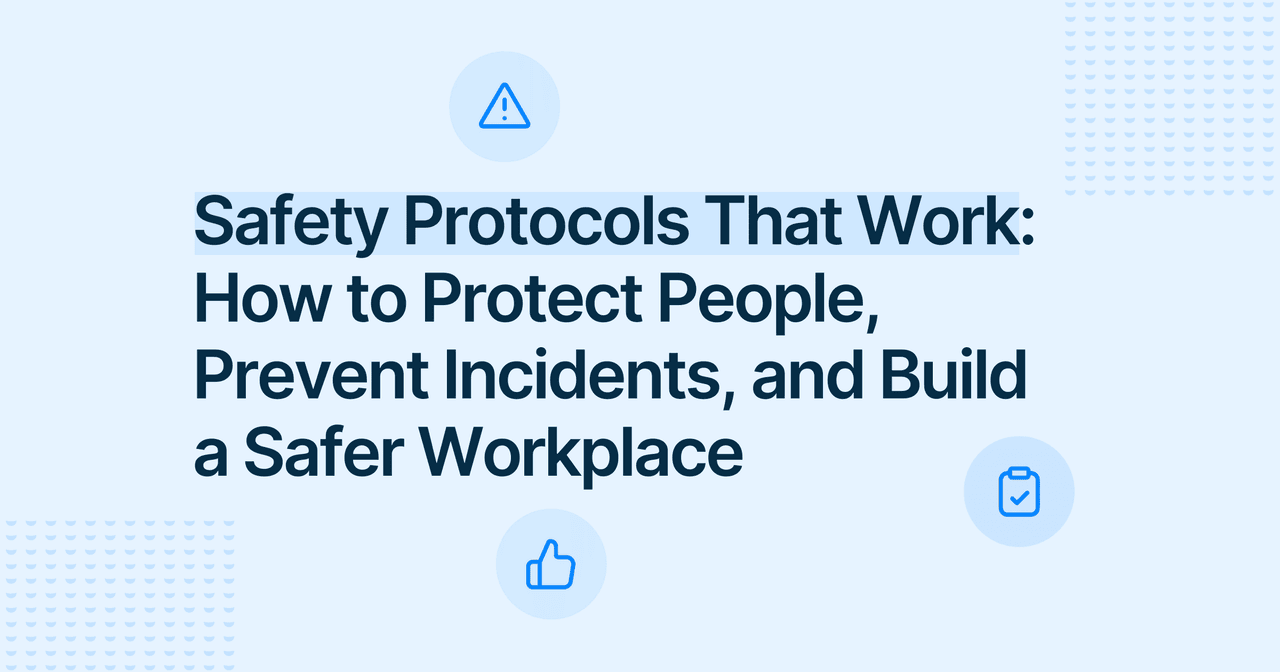



Modern Compliance Platform
Centralized whistleblowing and investigations in one secure platform.
Whistleblowing

Yeva Bartkiv
Copywriter
Published
2025-05-06
Reading time
5 min


Table of contents
Subscribe to our newsletter
For Compliance Officers, Legal Counsel, HR Managers, Internal Auditors, and Ethics & Compliance Program Leads in public companies and multinational corporations, whistleblowing is no longer a reactive afterthought - it's a structured, regulated mechanism essential to corporate governance, risk mitigation, and regulatory compliance. It's also one of the most complex areas, straddling legal, ethical, cultural, and operational domains.
This post unpacks the legal requirements for whistleblowing policies, clarifies what counts as a "protected disclosure," and outlines the standards necessary for compliance with laws like the Sarbanes-Oxley Act (SOX), the EU Whistleblowing Directive, and the Whistleblower Protection Act in the U.S. If you are responsible for crafting or maintaining your organization’s whistleblowing policy, this guide delivers the criteria you need to meet - with a touch of dry humor and a heavy dose of regulatory grit.
From the implosions of Enron and WorldCom to the scandals at Wirecard and Danske Bank, the case for robust whistleblower protections is etched in corporate history. Without trusted internal channels, whistleblowers go public or go to the SEC, OIG, or other law enforcement agencies. Once that happens, you’re not leading the narrative - regulators and journalists are.
You must assume your whistleblowing policy is not just for current employees. Former employees, subcontractors, personal services contractors, subgrantees, and even federal contract workers may all qualify under various laws for whistleblower protection. So yes, it’s complicated.
Under Section 806 of SOX, publicly traded companies must:
The SEC whistleblower program, established under Dodd-Frank, offers rewards and protections for whistleblowers who report securities violations. Key requirements:
For the federal government, the Whistleblower Protection Act and U.S. Office of Special Counsel (OSC) protect federal employees from adverse actions due to protected activity such as reporting:

If your organization works with or as a federal agency, compliance with federal whistleblower requirements is mandatory, not negotiable.
The EU whistleblowing directive requires organizations with 50+ employees to implement secure, confidential, and anonymous reporting systems. Protected topics include:
To be clear, the following are not nice-to-haves. These are the foundational pillars upon which a legally defensible whistleblowing policy is built.
Your policy must define:
Whistleblowers must have a reasonable belief that wrongdoing occurred. Your policy should:
Hotlines must meet SOX whistleblower hotline requirements and offer:
Include explicit clauses that prohibit any reprisal, demoting, dismissal, or other personnel action due to whistleblowing.

Don’t reinvent the wheel. There are credible, legally vetted whistleblowing policy templates available. They can help align your organization with:
Subcontractors, subgrantees, and personal services contractors must be covered under your whistleblowing program.
From intake to corrective action, your system must be auditable. The OSC and OIG don’t just ask if you have a hotline. They want logs.
Employees must know:
Laws vary by jurisdiction. In the U.S., you must align with federal law, state law, and the U.S.C.. In the EU, compliance with the EU whistleblowing directive is mandatory.
Solution: Partner with specialized counsel and use tools that flag gaps in multi-jurisdictional compliance.
In some companies, reporting wrongdoing is seen as disloyal or career-ending.
Solution: Embed values-based training. Reinforce that whistleblowing protects the public interest, not just the company.
Even with protections in place, many don’t trust them.
Solution: Publicize cases where the company supported whistleblowers. Include statistics in your annual gov or corporate responsibility reports.
Your system must include:
For public companies in the U.S., yes. Under Sarbanes Oxley whistleblower requirements, you must have a functioning, confidential system. The same applies in the EU under the EU whistleblowing directive. In practice, if you're asking "is a whistleblowing policy a legal requirement?" the answer is: "Yes, unless you enjoy subpoenas."
The stakes are high. A poorly designed whistleblowing system can lead to lawsuits, regulatory enforcement, and irreparable damage to your brand. A well-structured program? That builds trust, ensures compliance, and strengthens governance.
You don’t just need a policy. You need a strategy, tools, training, and enforcement mechanisms that are tailored to your risk profile and regulatory landscape. Consider consulting a legal expert, investing in a modern hotline platform, and reviewing your approach against a whistleblower policy SEC requirements checklist.
Remember: it’s not about catching wrongdoing. It’s about empowering those who do the right thing to speak up safely.




Centralized whistleblowing and investigations in one secure platform.
Keep Reading

Alaa El-Shaarawi2026-02-108 min
Legal & Compliance

Alaa El-Shaarawi2026-02-098 min
Workplace Environment

Marie Roland2026-02-033 min
Workplace Environment

Alaa El-Shaarawi2026-02-029 min
Workplace Environment